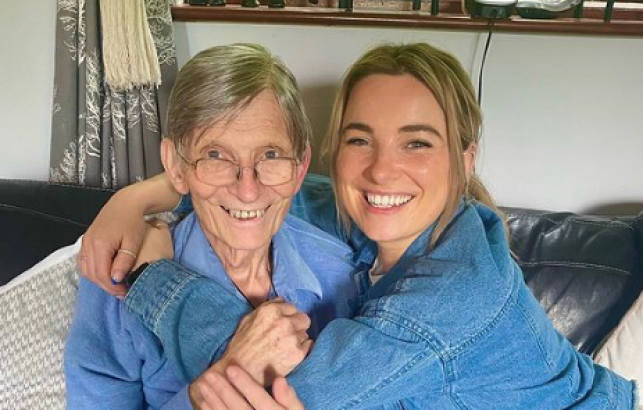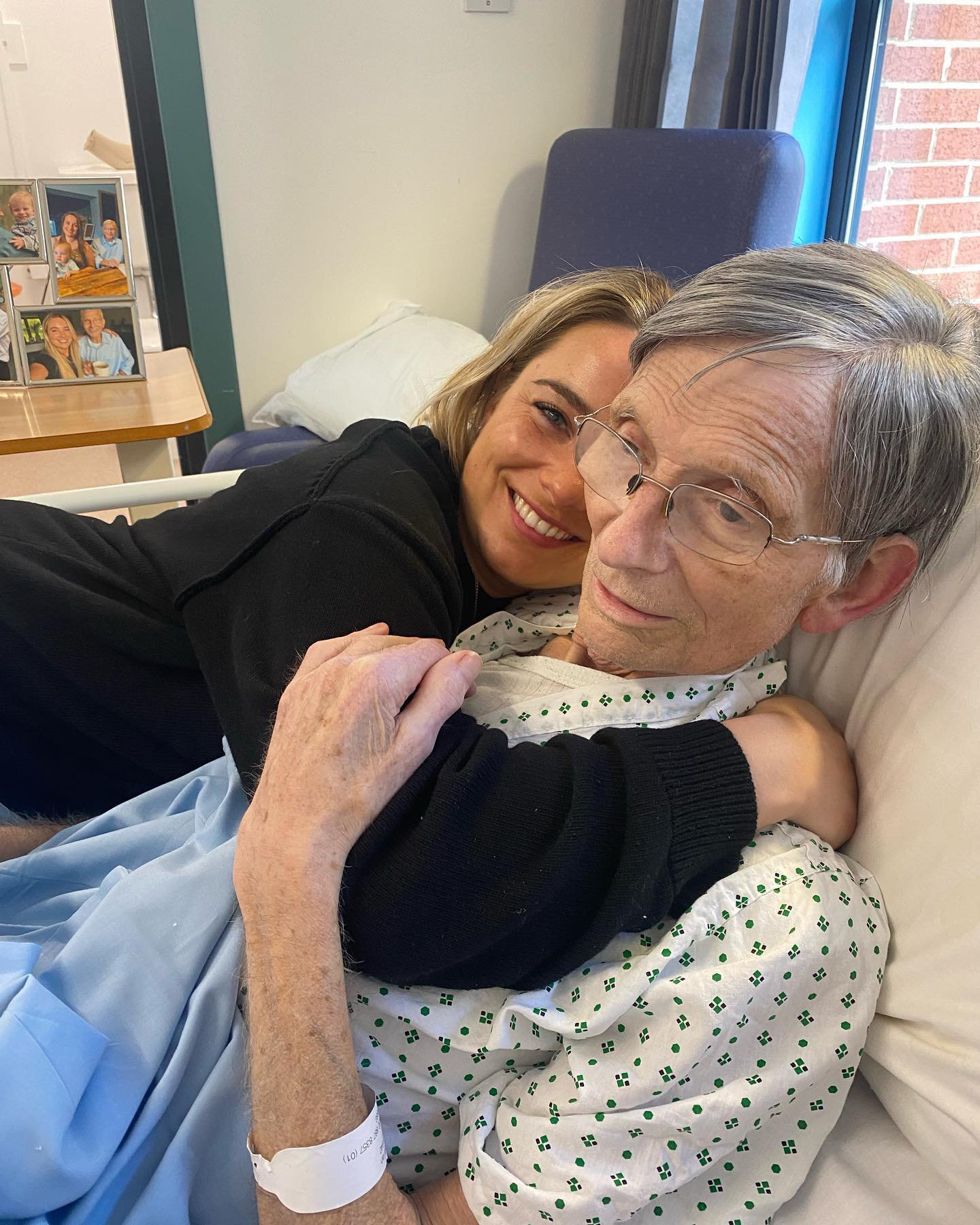
star has shared after revealing his battle with dementia.
That radio and TV personality, who alongside last month, previously revealed that her 84-year-old dad Ian was ‘going through it’ after his diagnosis.
She said: ‘You’re scared to lose a person that you know, it is quite frightening! Like you say, would I want to take a test knowing I could be susceptible to it?’
‘It’s hard to know! I don’t know if I want to know, is ignorance bliss? But then again, if I could do something about it?’
Siân, 37, has now shared a devastating update, saying Ian no longer has any short-term memory, but she still feels ‘lucky’ that he recognises her.
‘If someone calls, he puts the phone down and can’t remember who it was,’ she said.
‘If mum pops out to the shops, he can’t remember when she left – or when she’s coming back.’


Siân had previously spoken about her dad’s health in 2022 when she said he had contracted Covid-19 following his cancer diagnosis.
In a new interview with , she continued: ‘Thankfully he won the fight. But it was awful.
‘I don’t know how he didn’t die. There were some real low moments.
‘At one point he thought we’d put him in a home, he was so disorientated.’
However, Siân admitted she still feels ‘very lucky’ that her dad knows who she is.


‘He was overwhelmed, seeing me on the telly every day, the other week. When he’s in the moment, he’s very present,’ she added.
This comes after they were told Ian may ‘never get out of bed again’.
But Siân still hopes her dad will be walking her down the aisle, saying that when she got the thought of her dad being involved had her in tears.
‘Maybe, he’ll actually see me get married.’
This Morning airs weekdays from 10am on ITV1.
Alzheimer's and dementia: the facts
The most common forms of dementia (symptoms of a decline in brain function) are Alzheimer’s disease followed by vascular dementia.
Alzheimer’s is caused when plaques and tangles form in the brain making it increasingly hard for it to function properly. Early symptoms include forgetting recent events, struggling to remember words, becoming disorientated in familiar places and finding it difficult to concentrate.
Common early symptoms of vascular dementia include problems making decisions or following a series of steps, such as cooking a meal; slower speed of thought and trouble sleeping. The condition can also cause significant mood changes and depression and make people behave completely out of character.
Dementia is the UK’s biggest killer – and one in three babies born today will develop dementia in their lifetime. The risk of developing both Alzheimer’s and vascular dementia roughly doubles every five years from the age of 65. Women and men are affected equally. Diabetes, obesity, heart problems and high blood pressure all increase the risk.
However, you can significantly reduce your chances of developing the diseases by leading a healthy lifestyle – not smoking or drinking to excess, eating a balanced diet and getting regular exercise. Keeping mentally and socially active is also beneficial.
The third most common form of dementia – accounting for an estimated 20 per cent of cases – is Lewy body. With this condition, tiny clumps of protein appear in the brain’s nerve cells, causing a range of issues including mood swings, problems processing thoughts, hallucinations, difficulty balancing and walking slowly. Although DLB (dementia with Lewy body) can affect people under 65, it is much more common as we age, affecting men and women equally.
There is currently no cure for any of the forms of dementia. But getting an early diagnosis is very important in allowing you and your loved ones to access all the medical and social support available. If you are worried that you have any of the symptoms, your GP will be able to refer you to a specialist who can carry out a range of tests.
If you are worried that yours or someone else’s symptoms may be dementia, download the symptoms checklist, on alzheimers.org.uk; for more information or support on anything you’ve read here, call our support line on 0333 150 3456 or visit our website.




















